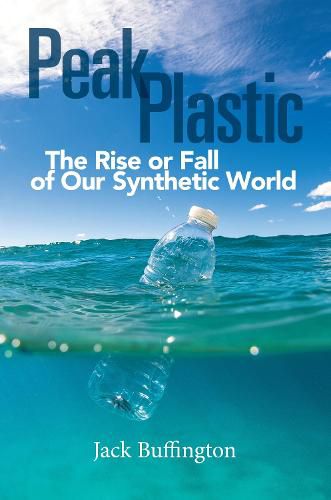Readings Newsletter
Become a Readings Member to make your shopping experience even easier.
Sign in or sign up for free!
You’re not far away from qualifying for FREE standard shipping within Australia
You’ve qualified for FREE standard shipping within Australia
The cart is loading…






Shows why plastics, in aggregate, have become a toxin to humans, wildlife, and the planet, and proposes novel solutions that involve neither traditional recycling nor giving up plastic.
Plastics! In the 50 years since Dustin Hoffman’s character in The Graduate was instructed that this was the career field of the future, we have not been able to escape this ubiquitous but poorly understood material. Author Jack Buffington argues that the plastics crisis is careening toward a tipping point from which there will be no return. There is still time, however, to do something about this crisis if we have the imagination and the will to move away from the failed policies of the past.
This book is the first to propose a new model for linking our synthetic world to the natural one, rather than seeking to treat them as separate entities. The key is supply chain innovation. Buffington presents five market-based solutions based on this principle that will allow consumers to continue to use plastic, which has in many ways enabled our way of life. Alongside these proposed solutions, he also addresses the proliferation of plastic as we know it-growth that, if left unchecked, will lead to a planetary crisis, according to the United Nations-and considers how the material itself might be adapted for a sustainable future.
Provides a realistic solution for our use of plastic: not to eliminate it, but to innovate it
Views plastic not only as a known environmental and health hazard but as a material critical to our future and therefore worth revising for future use
Explains what we must do-and by when-in order to be able to keep using plastic without harming the planet or our health
Shows the links between the environmental, toxicological, and socioeconomic challenges in our use of plastic, and how these dangers can be remedied by supply chain innovation
Introduces two significant disruptive innovations that if implemented, will save us from the growing problem posed by synthetics
$9.00 standard shipping within Australia
FREE standard shipping within Australia for orders over $100.00
Express & International shipping calculated at checkout
Shows why plastics, in aggregate, have become a toxin to humans, wildlife, and the planet, and proposes novel solutions that involve neither traditional recycling nor giving up plastic.
Plastics! In the 50 years since Dustin Hoffman’s character in The Graduate was instructed that this was the career field of the future, we have not been able to escape this ubiquitous but poorly understood material. Author Jack Buffington argues that the plastics crisis is careening toward a tipping point from which there will be no return. There is still time, however, to do something about this crisis if we have the imagination and the will to move away from the failed policies of the past.
This book is the first to propose a new model for linking our synthetic world to the natural one, rather than seeking to treat them as separate entities. The key is supply chain innovation. Buffington presents five market-based solutions based on this principle that will allow consumers to continue to use plastic, which has in many ways enabled our way of life. Alongside these proposed solutions, he also addresses the proliferation of plastic as we know it-growth that, if left unchecked, will lead to a planetary crisis, according to the United Nations-and considers how the material itself might be adapted for a sustainable future.
Provides a realistic solution for our use of plastic: not to eliminate it, but to innovate it
Views plastic not only as a known environmental and health hazard but as a material critical to our future and therefore worth revising for future use
Explains what we must do-and by when-in order to be able to keep using plastic without harming the planet or our health
Shows the links between the environmental, toxicological, and socioeconomic challenges in our use of plastic, and how these dangers can be remedied by supply chain innovation
Introduces two significant disruptive innovations that if implemented, will save us from the growing problem posed by synthetics